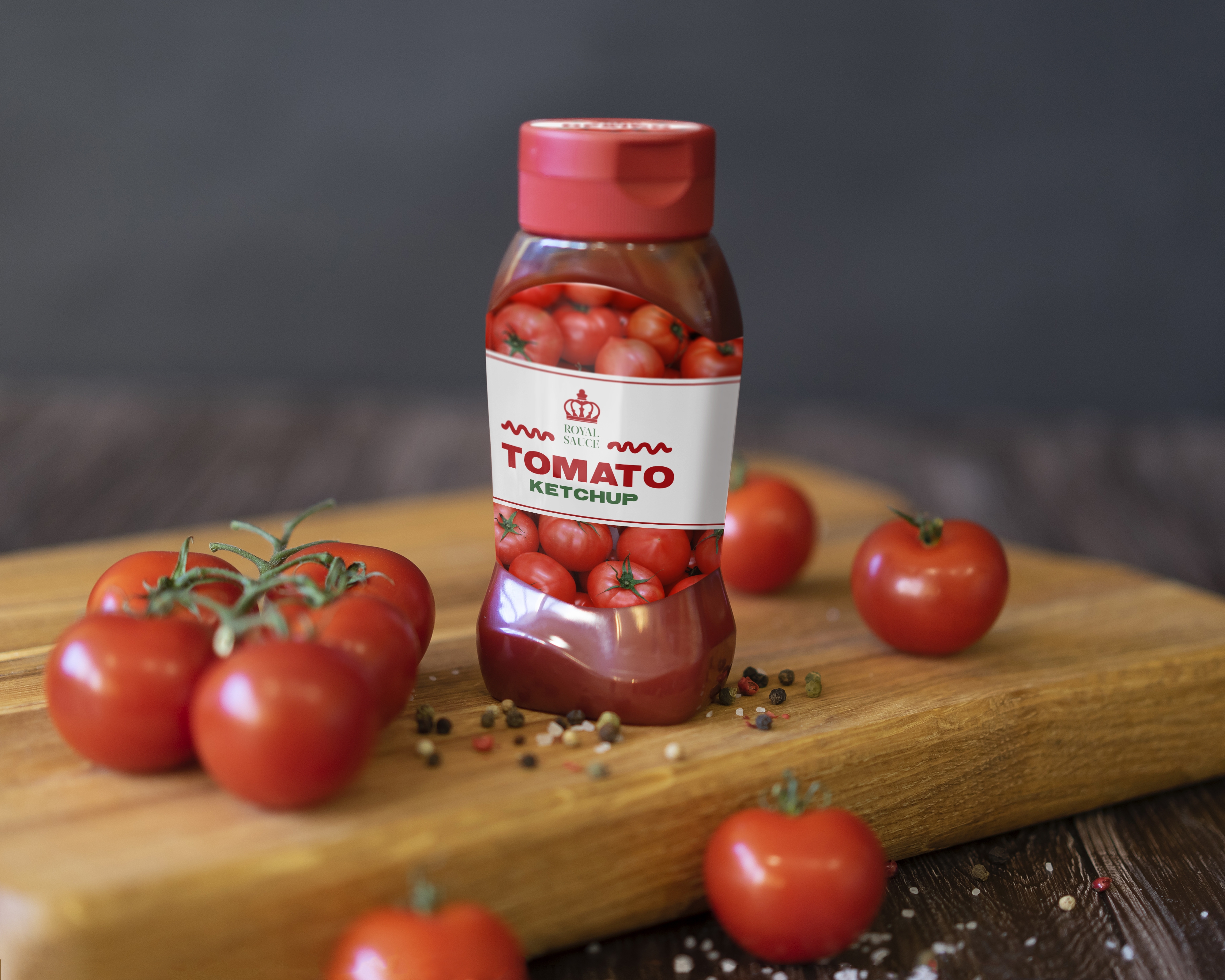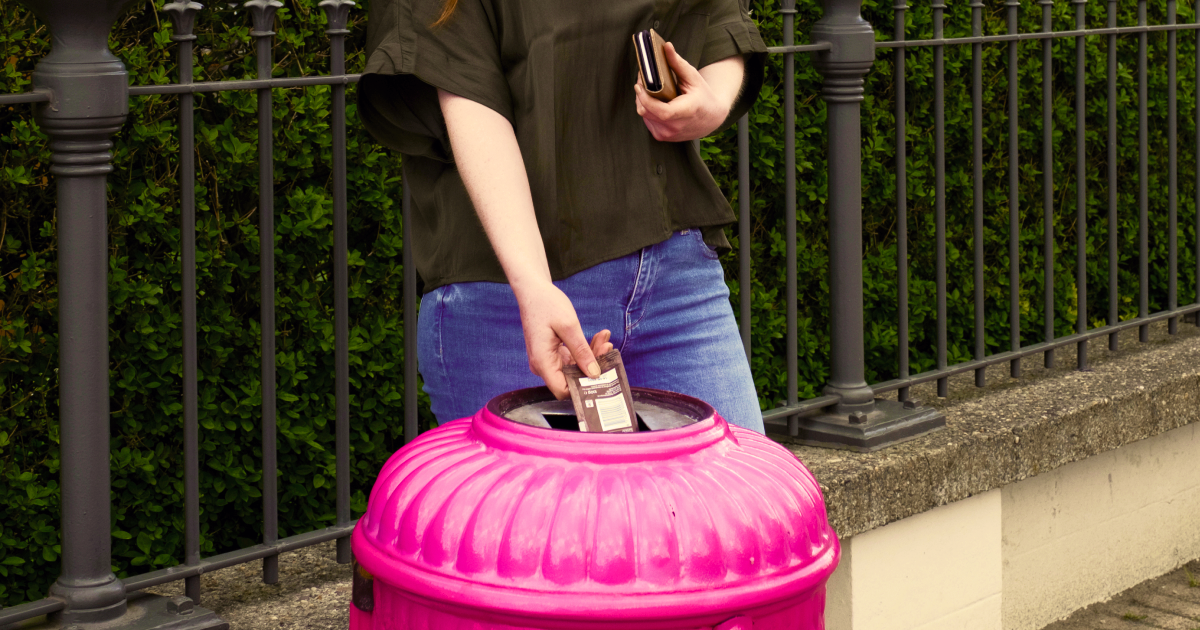Recycling all packaging. Let's go for it.

In Belgium we recycle almost all of our packaging. And that makes us almost completely happy. We’d like to thank you for this upfront. Because by sorting everywhere and all the time, you help us to recycle better.
Now, before we break out the champagne, beer, water or soft drink bottles, or drinks cartons, we’d like to ask you to make one last extra effort.
We’re doing our best to continue to innovate in our processing. For example, we recently introduced the New Blue Bag to collect even more plastic packaging, we’re using the Click rewards system to fight litter and make sure that more of the packaging we use on the move is recycled, we’re building more sorting centres to sort packaging materials more cleanly and we’re recycling more and more within our own country. But if we really want to recycle all packaging, we need your help.
At home, at work, at the sports club or on the move. With every drink you drink. With every piece of packaging that’s dropped. Because it’s only when we recover every can, bottle, drinks carton or any other kind of packaging that we can recycle them.
We’re totally committed to it. How about you?
Fost Plus. Recycling all packaging. Let’s go for it.
Should we turn your vinegar bottle into a bottle of bubbly?
How does a plastic bottle turn back into a plastic bottle?
Prefer a handy little water bottle to one of those big ones? Let’s go for it.
Step one is to put your bottle into the PMD bag, but you know that by now. So what happens next?
At the sorting centre, your bottle will be separated based on its material and colour. All the sorted bottles are then pressed into large bales to make it easier to transport them to the recycling plant.
Shall we make small bottles of water out of your big bottle?
There, the plastic bottles are ground into flakes or granules. Finally, those flakes or granules are melted and transformed to make new products or packaging.
New bottles for instance! And that’s how they come back to you. A bottle that you drop into the correct waste bin isn't incinerated as residual waste and doesn’t end up as litter. By sorting your bottle, you’re effectively recycling it.
So we turn your big bottle of water into lots of little bottles. Or would you prefer it the other way round?
What happens to the empty packaging that I put into the blue bag?
Had enough sunbathing, is it time to get your floors shining? Should we turn your bottle of sunscreen into a bottle of bleach?
But how do we do that? What happens to your PMD once you’ve sorted it into the blue bag?
To allow us to recycle packaging it first has to be sorted. We do this at one of the five high-tech PMD sorting centres in Belgium.
Should we turn your bottle of sunscreen into a bottle of bleach?
Together, they sort about 250,000 tonnes of PMD a year. So how does it work?
The first step is to open the bag, after which all the PMD goes to the conveyor belts. Then the drum sieves sort everything by size. The windshifter sucks light materials such as foils from the conveyor, as well as the blue bags because we recycle them too. Giant magnets and eddy current separators extract the steel and aluminium packaging. A series of infrared detectors sort the waste visually and based on reflections. A ballistic separator sorts flat and contoured shapes like your sunscreen or bleach bottle.
Thanks to all these technologies we eventually end up with 14 different material streams which are pressed into large bales. Now, they’re ready to be recycled.
Finished cleaning? Time to catch a tan again. Don’t forget your sunscreen.
Will my ketchup bottle come back as a ketchup bottle?
Spilled ketchup on your new white trousers? Don’t worry, we’ll turn your bottle of ketchup into a bottle of detergent in an instant. How do we do that?

Whatever you put into the blue PMD bag will be recycled. But that’s not news to you. Whether we can use the recycled raw materials in the same way depends on the type of plastic. A plastic PET drinks bottle is usually recycled into a new drinks bottle. On the other hand, a used ketchup bottle cannot always be recycled into a new ketchup bottle. That’s because this bottle is often made from HDPE. And we’re not yet allowed to use recycled HDPE to make new packaging for foodstuffs. This is due to strict European food safety regulations. Research and technological innovations may well change this, so it's quite possible that other plastics like HDPE could be used for one-to-one recycling quite soon.
Should we turn your ketchup bottle into a bottle of detergent?
Of course, in the meantime, we recycle all plastic packaging materials. After all, there are far more products and packaging on sale than just for food. And anything that can be made from recycled raw materials is a bonus for nature.
And your ketchup bottle? We’ll make a detergent bottle from it. So your trousers will be sparkling white again in no time.
How does sorting work when you're on the go?
Belgium is one of Europe’s top packaging recyclers. This is thanks to everyone who sorts: at home, at work, at sports clubs and everywhere they can. In 2020, we recycled close to 95% of all our packaging.

When you’re out and about, on the streets around town, it’s certainly a lot more difficult to keep up the good habit of sorting than it is at home. Sorting in public spaces is simply not possible everywhere. What’s more, some small elements of packaging inevitably end up as litter.
And those materials are lost to the circular economy which is a real pity.
With the Click, we want to offer a dual answer to this. On the one hand, we want to eliminate litter from the world. We do this by rewarding you for your good behaviour, putting your own packaging or packaging you’ve picked up when you’re on the move into the right bin. It works like this. Scan or photograph the packaging or waste, then throw it into the right bin and you’ll get Circular Ucoins, virtual money you can spend in local shops.
Click to combat litter
On the other hand, we want to collect more packaging for recycling, and that includes the packaging from public rubbish bins. After all, they also contain recyclable materials which we can, and want to, include in the chain. That’s why we apply the ‘pre-sorting’ principle within the Click project. What does this mean? The contents of public rubbish bins are taken to a specialist pre-sorting centre where the packaging is separated from the rest of the waste. The PMD goes to a PMD sorting centre where it, along with the contents of the blue bag collected from your home, goes into recycling.
To sum up, sort at home into the blue PMD bag. And if you're on the move, sort where you can and Click to combat litter to ensure that as much packaging as possible is recycled. You’ll also earn some virtual cash when you do. You can already Click in Antwerp, Namur, Anderlecht and at the coast. For more information just go to www.the-click.be.
